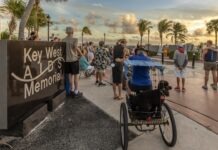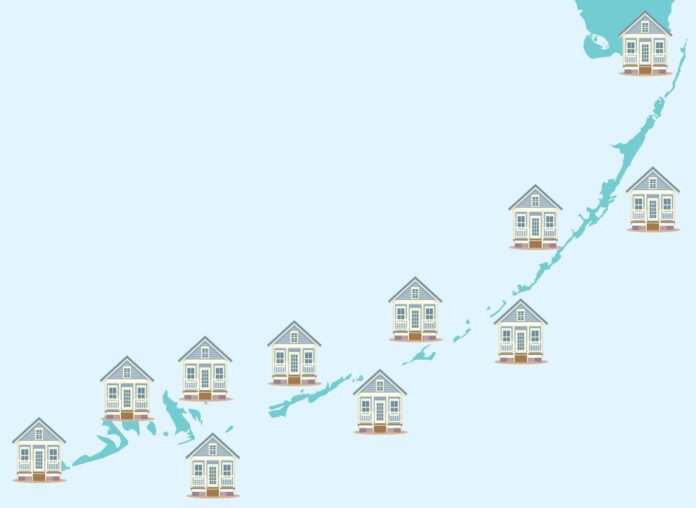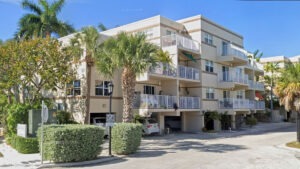By Alex Rickert and Jim McCarthy
Four bills that could have provided hundreds or thousands of new building rights to the Florida Keys at the conclusion of the 2025 Florida legislative session were in a wild push to the finish.
Sponsored by state Rep. Jim Mooney, House Bill 995, which would award up to 825 new building allocations over a 10-year period, passed unanimously in the House on April 23. In line with requests laid out by municipalities and the Monroe County Commission, the bill would direct governments receiving additional rights to use them on vacant lots and to support workforce housing for owners and tenants earning most of their income in the Keys.
Mooney’s bill would make a slight modification to statutes governing the Keys as an Area of Critical State Concern, pushing the island chain’s mandatory hurricane evacuation time for permanent residents from 24 to 24.5 hours as determined by models from the Florida Department of Commerce.
However, HB 995’s Senate companion, Sen. Ana Maria Rodriguez’s SB 1326, had not been heard by the Senate as of press time on Wednesday after passing through the Environment and Natural Resources Committee in late March and the Appropriations Committee on Agriculture, Environment and General Government in early April. SB 1326 originally sought to provide up to 3,550 building allocations over a minimum of 40 years, but was later amended to align with HB 995.
“I am working diligently with my colleagues to re-insert my original (building rights) language (24.5 hours) onto another bill,” Rodriguez told the Weekly via text on Wednesday morning. “Everything is very fluid at this point – (I’m) hoping we can get this over the finish line, which will equate to approximately 820 additional permits for Monroe County.”
Senate Bills 1730 and 180, originally approved by the Senate with unanimous votes on April 16 and 9, respectively, passed the House with near-unanimous approval on April 29. While SB 180 lays out provisions for emergency preparedness and response, SB 1730 deals specifically with affordable housing. Previous versions of both bills would have called for an increase in the mandatory hurricane evacuation time within the Florida Keys Area of Critical State Concern for permanent residents from 24 to 26 hours – but those amendments were struck from the final versions approved in the House this week.
Although the bills made no mention of a specific number of additional units given to the Keys, SB 180 listed the “intent of the Legislature… (to) accommodate the building of additional developments within the Florida Keys to ameliorate the acute affordable housing and building permit allocation shortage.” The bill also stated that local governments should allow additional building “with a heightened focus on long-term stability and affordable housing for the local workforce.”
On Wednesday evening, Senate Bill 1730 was passed by senators. Language pertaining to a 26-hour evacuation was removed from legislation before the Senate’s approval. On Thursday morning, the House followed up by passing the amended bill.
Senate Bill 180, which was approved by senators on April 9, cleared the House on April 29. Like Senate Bill 1730, language for a 26-hour evacuation was removed from the legislation before House approval. The amended bill is back in the Senate for consideration.
The four bills are a final verdict of sorts following a year of debate among island residents and governments over how to manage the future of development in the Keys, featuring an extensive series of workshops and surveys, along with expert presentations on infrastructure capabilities and evacuation logistics.
Property rights proponents and those stressing the need to ease the islands’ workforce housing crisis have repeatedly gone toe-to-toe with environmental groups and others challenging the reported reality of takings lawsuits if owners of buildable lots are denied the necessary permits to do so.
But city attorneys tasked with defending local governments have repeatedly framed the lawsuits as a binary choice: write a permit, or write a check. Submitting a request to state lawmakers, they said, could potentially allow smaller governments to bring in the state as a co-defendant in future takings cases if these requests were denied by the Legislature or state departments.
Should the Keys receive no additional allocations during the 2025 session, local governments would likely turn again to a pool of 220 units theoretically allowed under the current 24-hour hurricane evacuation time, but not yet officially bestowed to Keys municipalities by the state for immediate use.
In October 2024, the Monroe County Board of County Commissioners elected to move forward with a request for those 220 rights from FloridaCommerce – but learned in early December that state officials were unlikely to issue those units, or any others, until all jurisdictions in the Keys exhausted their existing supplies of building rights.
Some, like Marathon, have already effectively reached the end of their pool of building rights, and would theoretically serve as the “canary in the coal mine” for future cases should the Keys receive no additional building rights.
The total price tag of these takings cases would hinge on a number of factors, including the total number of buildable lots in each jurisdiction and whether or not the lots were purchased before enactment of the Rate of Growth Ordinance (ROGO) limiting development in the Keys. In other words: whether or not a property owner should have had a reasonable expectation of building a home on their lot based on laws in place at the time and the lot’s environmental characteristics.
Florida’s legislative session ends on Friday, May 2, but an additional special session to address budget and tax relief items is highly likely.


















